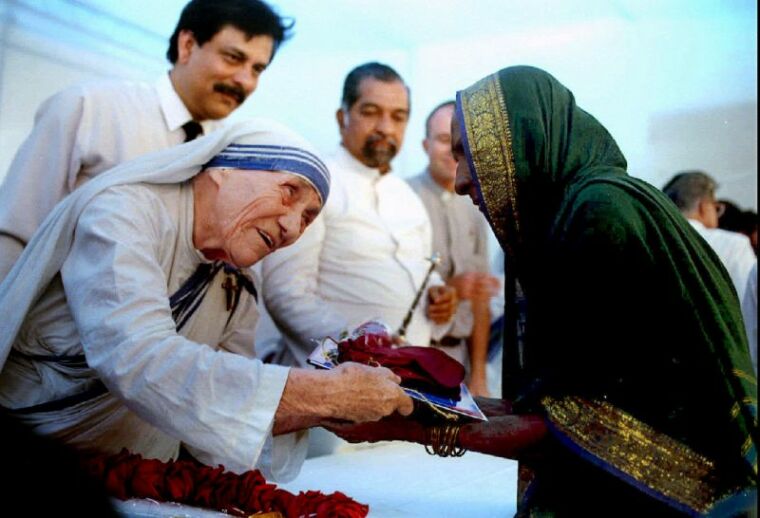Mother Teresa a criminal, not a saint, according to Hindu nationalist

NEW DEHLI, India (Christian Examiner) – Days after the canonization of Mother Teresa by Pope Francis, the Catholic saint is under fire from a member of India's Hindu nationalist party for attempting to convert unsuspecting children to Christianity.
India's Daily Pioneer reports Mandsaur Sudhir Gupta, a member of parliament with the Bharatiya Janata Party, said Mother Teresa's work among the poor of Calcutta was only a cover for her plans to convert "innocent children."
"When a saint gives something, he doesn't take anything in return. Why then did Mother Teresa accept so many awards?" Gupta asked.
She gets credit for [helping the poor]. Many social reformers don't even get named, or fame. But after helping the poor, she took their religion from them.
In fact, Gupta – who represents a party that seeks to limit the influence of all religions in India except for Hinduism – said Mother Teresa was not a saint at all. She was, in his estimation, a criminal.
"She gets credit for [helping the poor]. Many social reformers don't even get named, or fame. But after helping the poor, she took their religion from them," Gupta said. He said that made her guilty of bada apradh or "a big crime."
Gupta said his anger wouldn't be justified if the people Mother Teresa helped were over the age of 18 and could have made an adult decision to change their religion. However, it is unlikely many would have survived to that age had she not intervened.
Mother Teresa worked among the sick, lepers and orphans of Calcutta, many of whom were abandoned by their families or the society at large. The Daily Pioneer said as much, claiming others in India "didn't feed [them] or avoided going close to them."
In his homily for the canonization of Mother Teresa Sept. 4 in Rome, Pope Francis said the nun was a "dispenser of divine mercy, making herself available for everyone through her welcome and defense of human life, those unborn and those abandoned and discarded."
"She bowed down before those who were spent, left to die on the side of the road, seeing in them their God-given dignity; she made her voice heard before the powers of this world, so that they might recognize their guilt for the crime of poverty they created. For Mother Teresa, mercy was the 'salt' which gave flavor to her work, it was the 'light' which shone in the darkness of the many who no longer had tears to shed for their poverty and suffering," Francis said.
Francis also said Mother Teresa demonstrated "gratuitous love, free from every ideology and all obligations." He said her ministry was not changed by the culture, race or religion of those to whom she ministered.
Born Anjezë Gonxhe Bojaxhiu in Albania in 1910, Mother Teresa left home at age 18 to pursue work as a missionary. She taught school in Calcutta for several years, and it was during India's 1943 famine – in the midst of World War II – that she took on her work with the poor. It became her singular focus.
She founded the order known as Missionaries of Charity, which still works among the poor in the slums of Calcutta, India.
She was awarded the Nobel Peace Prize for her work in 1979, but only saw the prize's financial benefit as another opportunity to help the poor.
"The poor must know that we love them," she told a reporter who informed her of the Nobel award. As more reporters arrived to cover the award, she said she needed to "go hide somewhere."